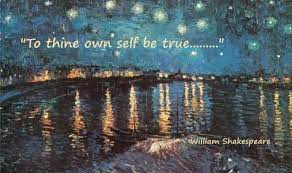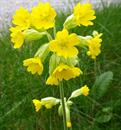This piece provides lifestyle advice for Gen-Zers, people born between 1995 and 2009. It includes advice on some matters likely to have been beyond Polonius’ ken, such as internet usage and how to deal with alternative facts.
A few weeks ago we had special guests for dinner. Ella took the opportunity to encourage two of the others – her adult grandchildren – to be guided by the advice Polonius gave his son Laertes (Hamlet, Act 1, Scene 3). In sum, Polonius’ advice was that Laertes should be balanced, smart, and honest; neither a borrower nor a lender; and, above all, true to himself.

The two young women – both Generation Z-ers or ‘Digital Natives’ – felt that Polonius’ advice lacks some 21st-century currency.
Accordingly, I have updated Polonius’s speech in both content and style. The scope of the new advice includes topics dealt with in Polonius’ original, with the addition of advice on matters that were beyond his ken, such as internet usage. I await the verdict of the two granddaughters as to whether this revised version has more contemporary relevance.
Going to uni? Well that will be nice.
Please let me give you a little advice.
Think before speaking; be slightly reserved –
Slave to one’s impulse is never well served.
After your work is well balanced with life,
No mind to old roles like ‘husband’ and ‘wife’.
Fancy a partner (the oyster’s unfurled?) –
Select any you like from across the wide world.
Choose where to work, it really won’t matter,
Unless you’ve a foot on the property ladder!
Value your real friends and keep them quite close;
But don’t be too open with many of those
New to your circle. Argue with contacts
With a clarity that’s based on plain facts
If it’s important – for why waste your time
On argumentation not worth a dime?

Digital natives (or ‘zoomers’) take heed:
Hypercognition’s not all you will need.
Sleep deprivation’s a real thing for you;
Widespread depression – it’s sad but it’s true.
Subject to allergies, poor mental health,
Good education the key to your wealth.

Love for your fam’ly is what you do best
Honest and loyal when put to the test.
Fall out with people may bring you no loss
In enemy form. But some to your cost.
Be a good list’ner; speak rarely, be kind;
Don’t try to hide what is true to your mind.
Critics will sometimes get right up your nose.
Credit broad meaning from any of those
Who contradict freely – want to take sides –
Argue unceasingly black is now white,
Will take a position right back to taws

Believing their facts are better than yours.
Sometimes let contrary points be unmet
If outcome’s benign – no harm from it yet.
Try to retain your good reasons for views;
Straw man’s absurdity try not to use.[2]
Take many selfies; and stream Taylor Swift;

Three hours on the phone – and more if a rift.
Less drinking, less sex: you’re quite risk averse:
With voice-command apps instead of a nurse?
Sleep with your mobile – use YouTube and text;
Worried when one of your Friends becomes sext.
(A picture it’s said’s worth one thousand words
But life with just Gifs would be surely absurd.)

If you wear flashy clothes – even French in design –
You won’t please good people: show them your mind.
Try not to mix any business with pleasure;
Spend as you can but in sensible measure.
If needing a loan a co-op is best
For banks are not loved – let their lending lie rest.
Key to it all – take this message away:
It’s absolute truth should always hold sway.

gg 25 Feb 2022
[1] Generation Z consists of those born between 1995 and 2009. The name is a reference to the fact that it is the second generation after Generation X, continuing the alphabetical sequence from Generation Y (Millennials). Other proposed names for the generation include iGeneration, Homeland Generation, Net Gen, Digital Natives, Neo-Digital Natives, Pluralist Generation, Internet Generation, Centennials, and Post-Millennials. The term Internet Generation is in reference to the fact that they are the first to have been born after the mass-adoption of the Internet.
[2] I am grateful to Allyne for this, attributed to Voltaire (1765): “Certainement qui est en droit de vous rendre absurde, est en droit de vous rendre injuste.” Translations include: “Certainly anyone who has the power to make you believe absurdities has the power to make you commit injustices.”


